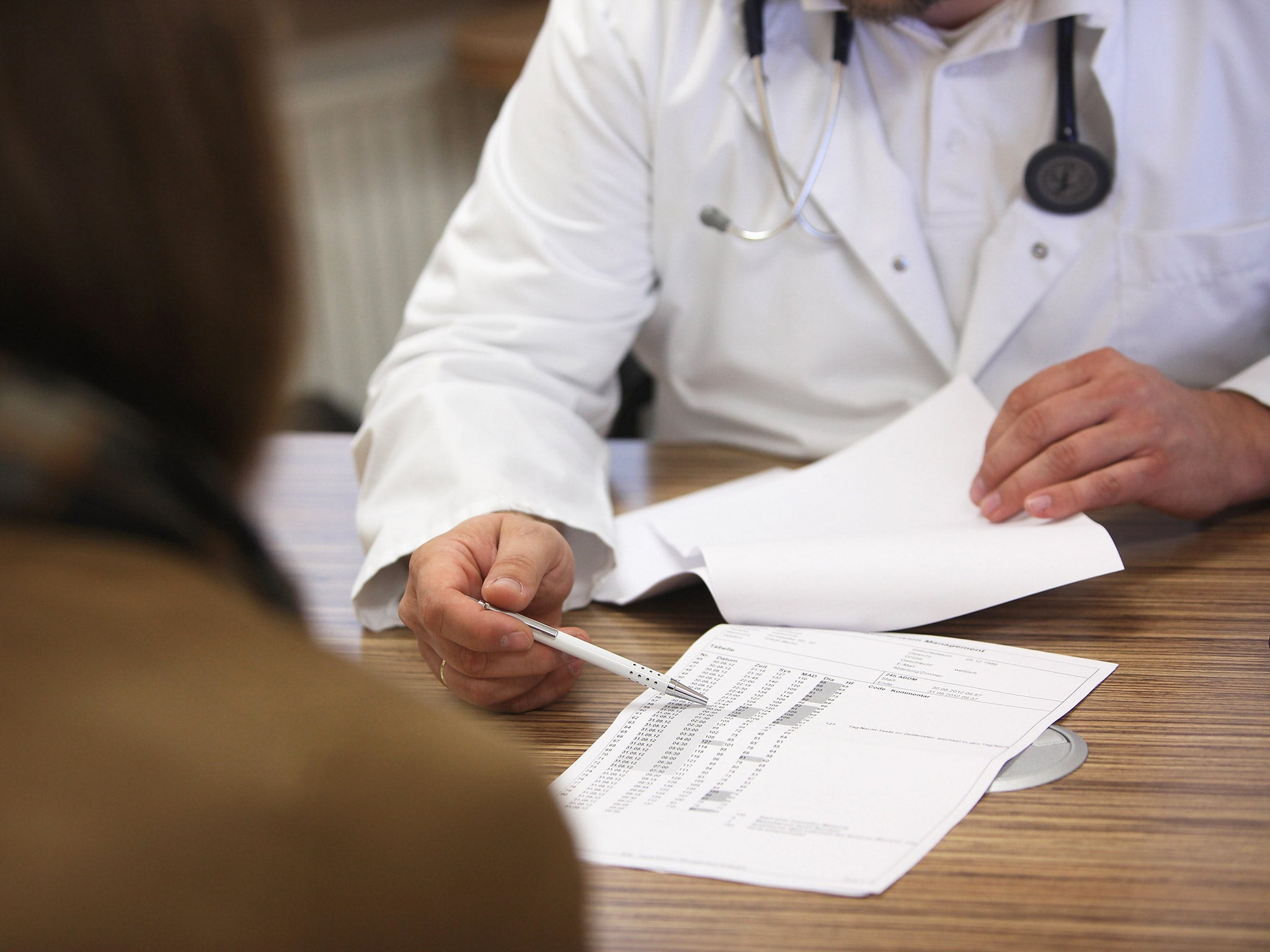Cancer fast track scheme 'could have saved thousands of lives if used properly'
Academic study concludes 2,500 patients died needlessly because GPs didn't make 'high-use' of urgent referral scheme

Support truly
independent journalism
Our mission is to deliver unbiased, fact-based reporting that holds power to account and exposes the truth.
Whether $5 or $50, every contribution counts.
Support us to deliver journalism without an agenda.

Louise Thomas
Editor
Almost 2,500 people could still be alive if GPs across the country had made better use of fast track appointments for suspected cancer patients, new research has revealed.
According to the study by academics at King’s College London, thousands of cancer sufferers are needlessly dying in England because almost four in ten family doctors fail to use make proper use of an urgent referral pathway to ensure they see a cancer specialist within two weeks.
The urgent referral pathway for suspected cancer patients is a key part of the NHS strategy to improve survival rates from the illness, but critics says its use by GPs has varied considerably since it was introduced 15 years ago.
The study published in the British Medical Journal found that just one in six GP surgeries had a “high use” of the life-saving scheme, which resulted in a 4 per cent improvement in the mortality rate. In comparison surgeries with a low referral rate had a 7 per cent worse mortality rate.
Professor Henrik Moller, who led the study looking at patient data for more than 200,000 people and 8,000 GP surgeries, urged doctors to make more use of the scheme which enables early diagnosis and more effective treatment.
Prof Moller said: "It is generally assumed that the more promptly a diagnosis of cancer is made, the better is the prognosis, because cancer detected at an earlier stage has better treatment options leading to improved survival.
"This assumption is supported by evidence that tumours can progress during the time taken to reach a diagnosis and start treatment. Observational studies have found an association between time to diagnosis and mortality.”
The research comes after a study published last month showed that the UK has the worst survival rate for cancer in western Europe, with rates a third lower than in Sweden.
Join our commenting forum
Join thought-provoking conversations, follow other Independent readers and see their replies
Comments